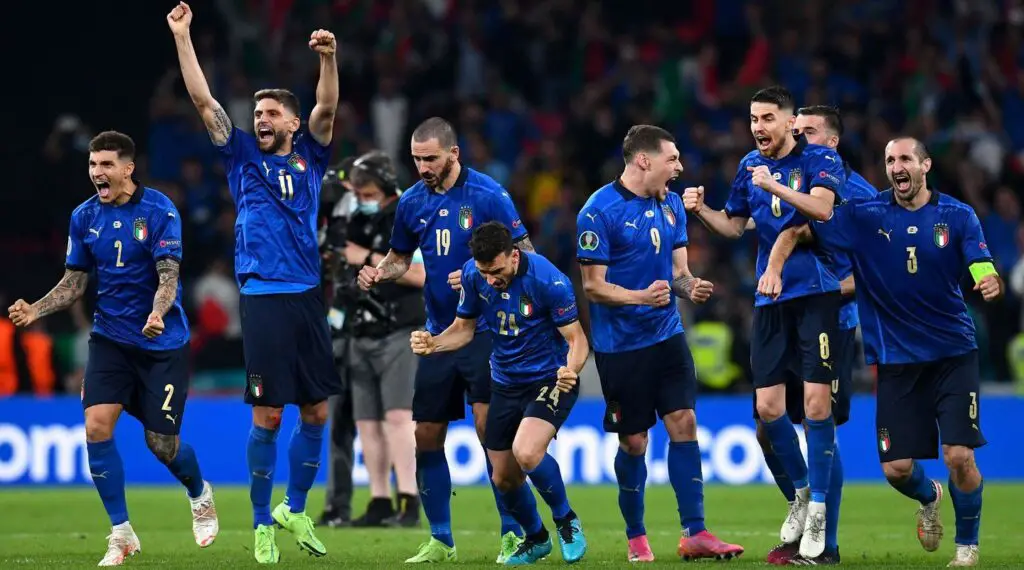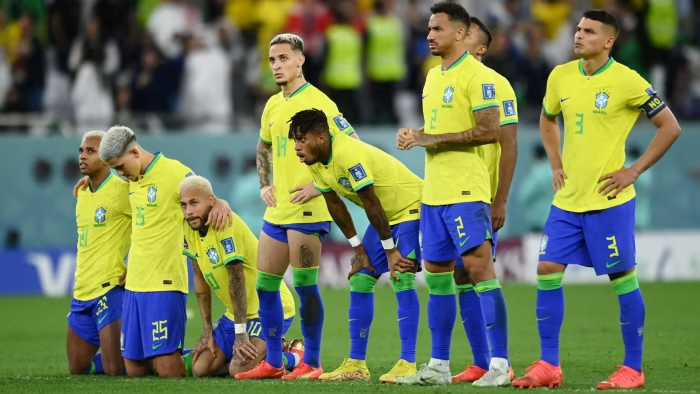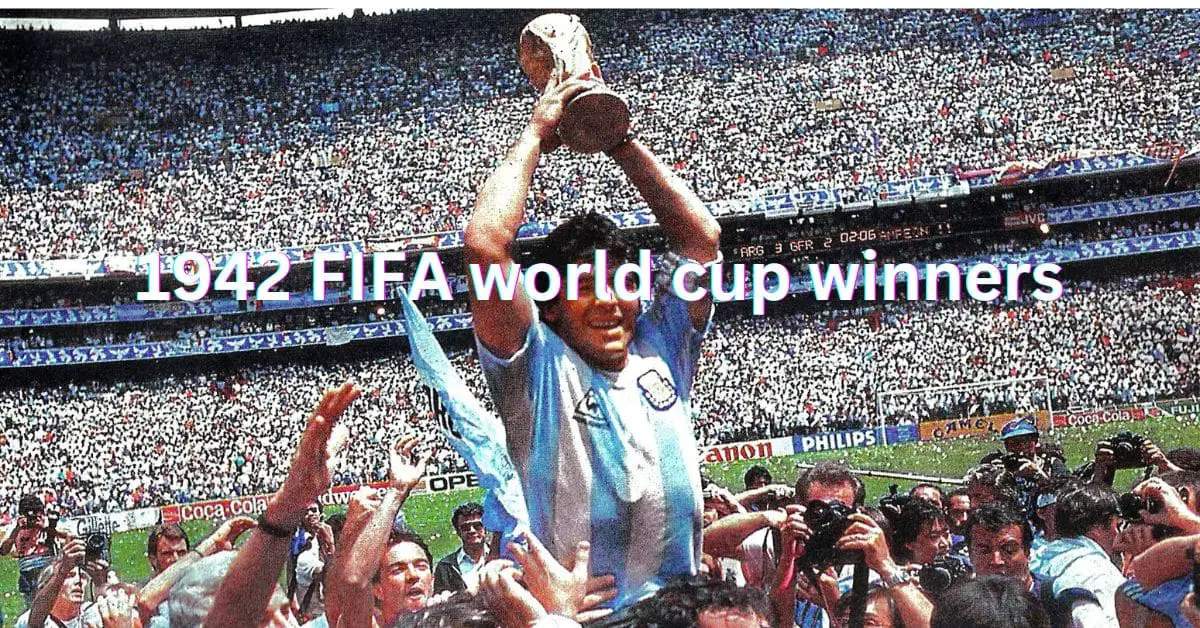1942 FIFA World Cup winners footballlegendstoday.com
The FIFA World Cup is football’s ultimate event: something that unites and celebrates the riches of a tournament with nations bonding together in spectacular talent to create memories forever. But an interesting and mysterious chapter in this glorious history is the 1942 FIFA World Cup. Unlike any other event, it did not occur, leaving us all filled with questions, scenarios, and dreams about who could have taken the victory banner home.
Let’s make some fascinating “what ifs” about the winners in the 1942 World Cup: exploring the context, possible champions, and the lasting impact of a lost tournament.
The Historical Context: Why Was the 1942 World Cup Canceled?
The 1942 FIFA World Cup was designed as the fifth edition of the tournament after the 1938 World Cup held in France. The world was still charged with the football fever, and Italy’s back-to-back victories in 1934 and 1938 made it a procession of an Italian dynasty.
However, history had other plans. By 1939, the world plunged into chaos with the outbreak of World War II. Football, like most things, took a backseat to the war effort. FIFA had no choice but to cancel the 1942 tournament. The nations and their young males were drafted into the military; most stadiums were repurposed for war-related activities, and the dream of crowning a new champion was placed on hold.
Who Were the Likely Contenders?
Though there was no World Cup held in 1942, historians and football enthusiasts have always tried to conjecture about which nation might have emerged as a winner. Based on the landscape of football at the time, here are a few of the best contenders:
1. Italy: The Defending Champions
Italy was a force to be reckoned with, after all, having won the 1934 and 1938 tournaments. Under coach Vittorio Pozzo, the Italian team was known for its disciplined tactics and strong defensive play. With stars like Giuseppe Meazza leading the charge, Italy would have been a favorite to seal a historic third title.

2. Brazil: Rising Power
Brazil was already establishing itself as a football giant by the end of the 1930s, having failed to win the 1938 World Cup but greatly impressing the world with their attacking style and flair. The potential breakout moment could have been the 1942 tournament with participants like Domingos da Guia and Leônidas da Silva making waves.

3. Germany: A Dubious Candidate
Germany’s footballing strength was rising during the 1930s, but their involvement in World War II cast a shadow over their potential participation. Had the tournament been held, Germany’s political climate may have influenced competition.
4. Argentina: South America’s Other Giant
Argentina was another strong contender. Strongly in love with the game of football and developing great players throughout its history, the Albiceleste would have been a serious challenge for others. The rivalry between them and Brazil would have only added to the spice of the 1942 World Cup.
The Human Angle of the Lost Tournament
For players, it meant, of course, the loss of a once-in-a-lifetime opportunity since most athletes had their careers at peak; the dropped 1942 World Cup meant they could only wonder what could have been.
Take Giuseppe Meazza, for instance. Known as one of Italy’s greatest players, he was in his early 30s during the early 1940s. The tournament might have been his swan song on the international stage. Similarly, Leônidas da Silva, often called “The Black Diamond,” could have dazzled fans with his innovative play.
Imagine the heartbreak of these players, who had trained their whole lives for a chance to shine on football’s biggest stage, only to see it snatched away by forces beyond their control.
What If the 1942 World Cup Had Taken Place?
Had the World Cup gone ahead in 1942, it would have been a tournament like no other. It probably would have been held in Brazil or Germany as both of those countries had expressed their intent to host it.
The rivalries, strategies, and iconic moments that may have unfolded will forever remain a mystery. Would Italy have won a third consecutive title? Could Brazil have finally claimed its first championship, beginning its journey toward football greatness?
The Legacy of the Lost World Cup
The non-appearance of the 1942 FIFA World Cup is a reminder to everyone about the impact of global events on sports. It also proves the strength of football: even amid war, the game survived and FIFA again resumed the World Cup in 1950.
The 1950 tournament, held in Brazil, was a watershed in the history of football. It brought to the world the legendary Maracanazo—the shock of the final between Uruguay and Brazil as Uruguay defeated Brazil. In a way, the drama of 1950 may not have been as poignant without the lost years of the 1940s.
A Personal Reflection on What Could Have Been
Growing up, I recall that my grandfather used to narrate stories about the pre-war football era. He always used to depict passionately the kind of style Meazza and Leônidas would have carried onto the biggest stage in 1942. These always sparked my curiosity and made me realize how much football unites generations.
Even today, the 1942 FIFA World Cup “what ifs” triggered debate among football fans. Reminding the world that the game is played on the field but stories live within the hearts of so many imaginative people.
Conclusion
The winners of the 1942 FIFA World Cup will forever be a mystery, but their story teaches us one important lesson: whatever the adversity, football unites and inspires. And as fans, we honor the legends of the past by keeping their stories alive.
While the world will forever be left wondering who might have accepted the trophy in 1942, the aftermath continues to evoke our interest in the beautiful game.










